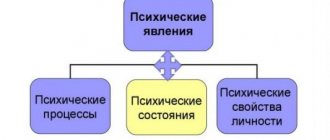People vary in the extent of the activity they perform. The scale of activity is not only a quantitative value, but also a qualitative characteristic of the subject area that a person covers with his active actions.
One person does work every day and does not want to think about problems that go beyond his department. When the need arises, he usually turns to a senior manager for help. Another, on the contrary, having mastered his area of responsibility, sometimes not even fully, begins to become interested in others, including larger units. He wants to expand his range of actions and feel the ability to realize himself more fully. The first one works at the level of his personal scale. The second has a personality scale that is clearly higher than his current position. If these managers are promoted and the scale of activity is expanded, for the first the work will become unnecessarily troublesome and restless, and for the second it will become a more interesting and promising business.
In the fact that a person in his life (or at a particular stage of it) realizes one or another scale of activity, chance plays a certain role, but the main factor is still the personal factor. Therefore, it is necessary to talk not only about the scale of activity, but also about the scale of personality.
The scale of personality is understood as the entire set of those psychological qualities that determine the characteristics of the choice of task, the process of solving it and, thus, the activity of a manager at one level or another. The scale is determined by the goals that a person sets and the results that he achieves.
Behind them are motives, needs, abilities, talent, knowledge, experience and other personal and professionally important qualities. Therefore, the psychological characteristics underlying the process of goal setting, plans and actions form the basis of the scale of personality. Thus, the main indicator of the scale of a person is the goals that a person sets and really strives to achieve in his professional activities.
To some extent, this thesis can be illustrated by the following example. One economist is looking for a way to increase the profitability of the production of a specific product and spends all his professional and intellectual resources on this, and scolds the unfavorable environmental conditions that interfere with a more effective solution of the problem in the smoking room. Another, whose responsibilities include a similar task, understands the narrowness of the boundaries of a possible solution, determined by the legal and economic environment, and therefore switches all his intellectual abilities to studying this problem and finding ways to solve it. This is not his job level, but this is the level of his understanding of the problem and professional interests in today's situation, so he will pose a professional problem differently and expand the boundaries of the approach to solving it. If they don’t understand him, he will most likely look for a job where he can realize himself.
In this example, both specialists have approximately the same understanding of the problem, but have different reactions to it, and this is determined by the correspondence between the scale of the individual and the problem at hand. For the first, the scale of the personality does not correspond to the scale of the problem, the result is a passive-critical reaction; in the second, these scales correspond to each other, so the reaction is active-search. The understanding of the problem may be the same, but practical actions will depend on the scale of the individual. Thus, an important indicator of the scale of a person is practical actions to realize goals, including the level of orientation in the problems underlying them.
The most accurate and objective indicator of the scale of a person’s personality is the level of socially recognized results of his activities. In order for active actions to achieve a goal to lead to positive results, the manager must have the correct orientation in the problem, the specific situation and the factors influencing it. At the same time, the depth and systematic elaboration of the solution to a practical problem depend on the level of professional competencies and intelligence of the manager. These same qualities determine the ability to see the prospects for further work on a solved problem. Large-scale personalities think in larger and more complex categories - not only economic or technical, but also ethical and humanitarian.
Therefore, for one person, the task assigned is associated with the long-term goals of his work at the enterprise, for another - with the goals of today, for a third - with the tasks that were solved at the previous stage. One employee, analyzing the task at hand, begins to better understand the need to modernize the entire production and along the way finds some ways to implement it, while another thinks much more narrowly, for example, concluding that one should have a stash of spare parts to solve similar problems in the future with less effort.
Thus, the scale of an individual’s activity is determined by the level of goals, the level of activity and determination, which are characteristics of ambition, as well as the boundaries of meaningful orientation in a situation, which depend on the intelligence and professional competencies of the person, and the real results achieved by the person and found recognition among other people.
It must be emphasized that the scale of personality is determined not by desires, but by effective goals that a person sets independently, without copying them from others. Therefore, if he changes goals, raises their level and better structures them, without reducing activity in their implementation, it means that there is a process of progressive change in the scale of the personality. This is the first condition for its development.
An increase in the scale of tasks is carried out through the complication and expansion of the boundaries of the environment. In a developing business, it is constantly growing, and this accordingly requires an increase in the scale of the personality of managers. If a manager is able to raise the level of his scale to the level of the scale of tasks, he grows; if not, he rolls back or stops.
Four levels of personality scale
As Sigmund Freud wrote: “The scale of your personality is determined by the magnitude of the problem that can drive you crazy.” Is it so?
There are four levels of personality scale:
- A person views himself as something separate from the world, country, family. Typical egoists who literally do not think about anyone but themselves (their problems are related to the inability to get what they want for themselves).
- A person feels part of his family and close circle, so he lives and works for them (problems: a child gets sick, he was fired from work, etc.).
- A person considers himself part of the country... and every resident of the country is important to him (problems: low birth rate, low pensions, etc.).
- A person feels like he is part of the world, and every person is his neighbor (problems: war in the country, famine, tragedies).
It is important to note that it will be difficult to determine the scale of your personality based on the size of the problem; it is much more accurate to do this based on the goals set and the results achieved.
You cannot determine by words alone the scale of your personality or the personality of the person in front of you; you cannot determine this by imaginary ambition, by appearance or gender. A person may consider something that is not a problem to be his problem. So rather than defining the size of your personality by the size of the problem, it is crucial to look at the actual actions that are being taken and whether they are moving you closer to the goal.
What is INDIVIDUALITY - Map of words and expressions of the Russian language
Individuality (from the Latin individuum - indivisible, individual) is a set of characteristic features and properties that distinguish one individual from another; originality of the psyche and personality of the individual, originality, uniqueness. Individuality is manifested in traits of temperament, character, clothing (appearance), specific interests, and qualities of perceptual processes. Individuality is characterized not only by unique properties, but also by the originality of the relationships between them. The prerequisite for the formation of human individuality is, first of all, the environment where he grows up, the associations he accumulated in childhood, upbringing, peculiarities of family structure and treatment of the child. There is an opinion that “one is born as an individual, one becomes an individual, and one defends individuality” (A.G. Asmolov).
All meanings of the word "individuality"
- This entails asceticism, renunciation of one's own individuality
, the orientation of all human life activity towards the “salvation of the soul.”
- It gives the numerologist reason to believe that the name contains the human individuality
, which is obviously taken from ancient beliefs.
- Each of them has its own bright individuality
and instrumentation of poetic sound, its own imagery and original poetic style.
(all offers) kartaslov.ru
Beyond the visible
There is one problem, but many solutions. Suppose you have a problem: there are too many homeless and unemployed people in the village. One person, out of his kindness, will help in any way he can - perhaps by feeding, perhaps by lending money. And you, perhaps, will expand your “I can”, trying to change the system, laws, environment, politics so that there are fewer such people. Here it is not the size of your problem that determines the scale of the individual, but rather the holistic approach to it.
Some people dream of buying a house, creating a beautiful garden, raising kind children, while others are thinking about how to deliver water to places where there is none. Like many people know, Rachel Backwis, who at an early age created a charity page to raise money for water for the people of Africa. And in the end, instead of the $300 she was counting on, more than a million was collected.
This was the magnitude of her problem. She owned the problem and took it upon herself to contribute to the solution. She considered herself part of the whole world and through her actions she called the people of Africa close to her.









